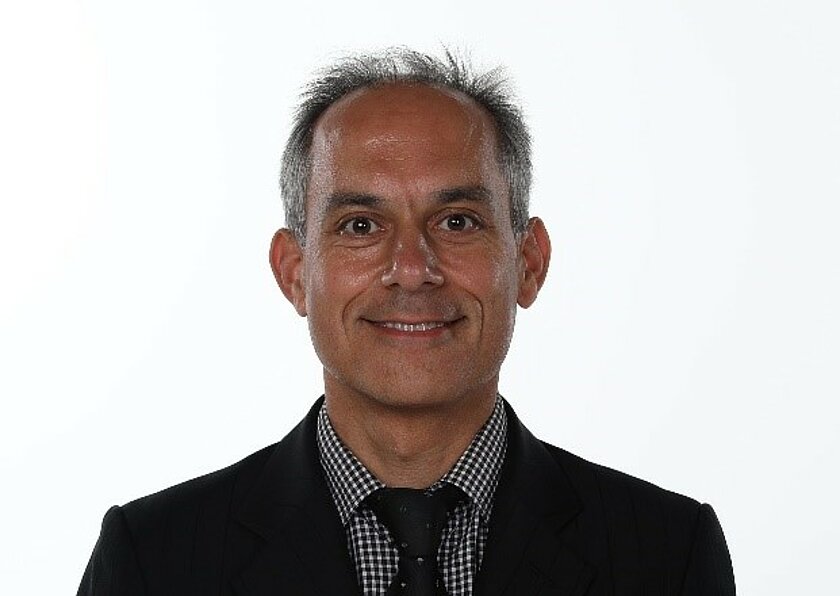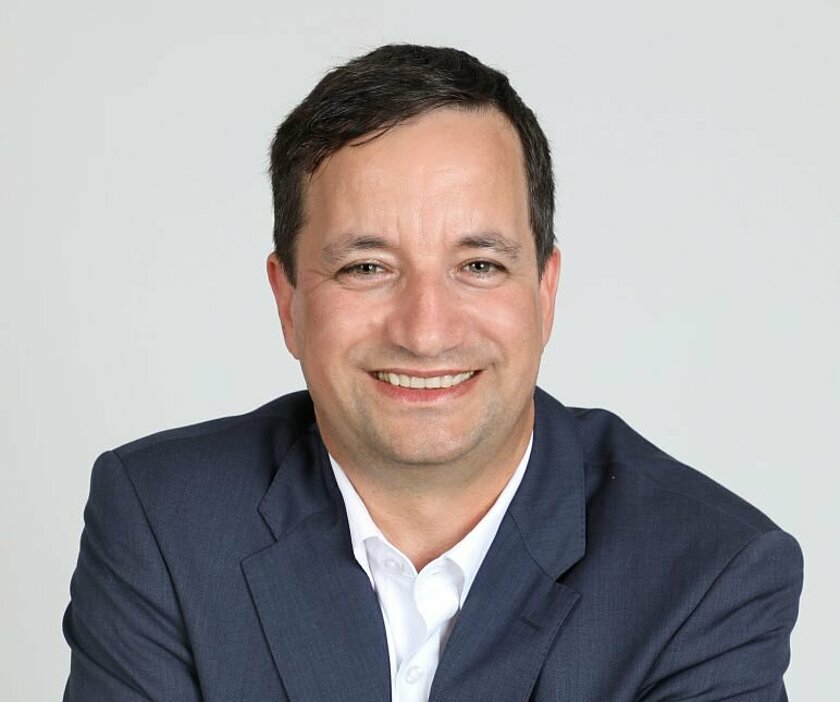The interlocutors
Prof. Dr. Patrick Da-Cruz is Professor of Business Administration and Health Care Management at the Faculty of Health Care Management at Neu-Ulm University of Applied Sciences (HNU) as well as scientific director of the MBA programme Leadership and Management in Health Care.
Before joining HNU, Mr Da-Cruz worked for renowned strategy consultancies in the pharmaceutical / healthcare sector as well as in management positions in companies in the healthcare industry in Germany and abroad.

Rüdiger Müller worked in management and purchasing at various hospitals for ten years. At the same time he volunteered in the purchasers' association Femak e.V., eight years of which as national chairman. including eight years as national chairman. Since 2012, Rüdiger Müller has been supporting clients as an independent management consultant in improving hospital purchasing(https://klinikeinkauf-verstehen.de/). The expert holds a degree in business administration (FH) and completed a bachelor's degree in health and social services (Social BBA) as well as an additional qualification in logistics management.

What challenges is hospital purchasing currently facing?
Rüdiger Müller: Like almost every industry, healthcare and hospital purchasing are of course struggling with the effects of past and current crises. In addition to inflation and unstable supply chains, the topics of digitalisation, sustainability, supply chain due diligence law, etc. are increasingly on the agenda. In addition, hospitals are suffering more and more (suppliers, of course, much more) from the fact that regulatory requirements (MDR) are causing suppliers to withdraw products from the market and to withdraw altogether. As a result, technological developments sometimes fall by the wayside or are no longer introduced as they should be. Smaller companies are finding it increasingly difficult to survive in the market.
Which goals dominate hospital purchasing?
Rüdiger Müller: Actually, strategic goals such as optimising supply chains and concepts for digitalisation and sustainability should dominate, but the topic of cost efficiency is still the primary goal of hospital purchasing. From my point of view, what has already improved in recent years (perhaps also due to the permanently ongoing crises) is the cooperation between users, controlling and purchasing. I think everyone has somehow understood that the desired product is not always immediately available at the most economical price, as it used to be. Everyone has learned to better understand the other point of view and to make compromises.
What roles do strategic partnerships play in hospital purchasing?
Rüdiger Müller: Of course strategic partnerships make sense for hospital purchasing. The reduction of suppliers and articles, the optimisation of processes from ordering to payment are certainly some of the key words here. Likewise, with a value-based procurement approach, I can promote innovations in the cooperation with a supplier and minimise risks with regard to security of supply.
But the truth is also: the more strategic partnerships, the more difficult it will be for competitors to be perceived accordingly and to place their products in the clinic. This affects smaller companies in particular. Because if I, as a hospital buyer, have a (successful) strategic partnership with a company in one product group/product portfolio, an expansion to other product groups is not out of the question (keyword bundling to get as many bonuses as possible).
What skills will a hospital purchasing manager need in the future?
Rüdiger Müller: In principle, the manager must be the "eierlegende Wollmilchsau": strategic and analytical thinking combined with hands-on mentality, as communicative and cooperative as possible, but please not too much at some points ("Are you operating or am I?"). The ideal candidate would be a highly educated strategist with strong social skills paired with above-average knowledge in the area of sustainability, digitalisation and knowledge in the area of compliance / legal framework. As remuneration in hospitals tends to be below average compared to other industries, it is not surprising that recruiting and retaining such leaders is very challenging.
Will the purchasing management of a hospital be located in the future as Chief Procurement Officer in the board of directors or in the management of the hospital?
The future role of the chief procurement officer as CPO on the board or in the management depends largely on the specific orientation and strategy of the hospital. Do I want a strategist who makes decisions on an equal footing with other areas of responsibility in the hospital and can then enforce them? Do I want a hospital purchasing department that moves with the times or is allowed to move with the times, driving innovation and technological progress forward? If so, I either have to find such a person first or try to fill this need from my own ranks. But I have unfortunately never heard of a "trainee programme hospital CPO".
What consequences arise for hospital purchasing from the topic of sustainability?
Rüdiger Müller: I think there are hardly any people left who do not see the topic of sustainability as THE topic of our time. In a recent survey by a well-known management consultancy, 90% of all hospital managements rated the topic of sustainability as important to very important. On the other hand, the topic of cost reduction in medical material requirements was still in second place. This does not make it any easier for hospital purchasing: in my opinion, buying sustainably but not more expensively is currently still a vicious circle. It would require a sustainability fund (similar to the Hospital Future Act) to take the economic pressure off the topic of sustainability in the procurement of medical products, to allow innovative products and companies to come onto the market and thus to ensure in the long term that sustainability and economic efficiency go hand in hand.
Thank you very much for the interview!






